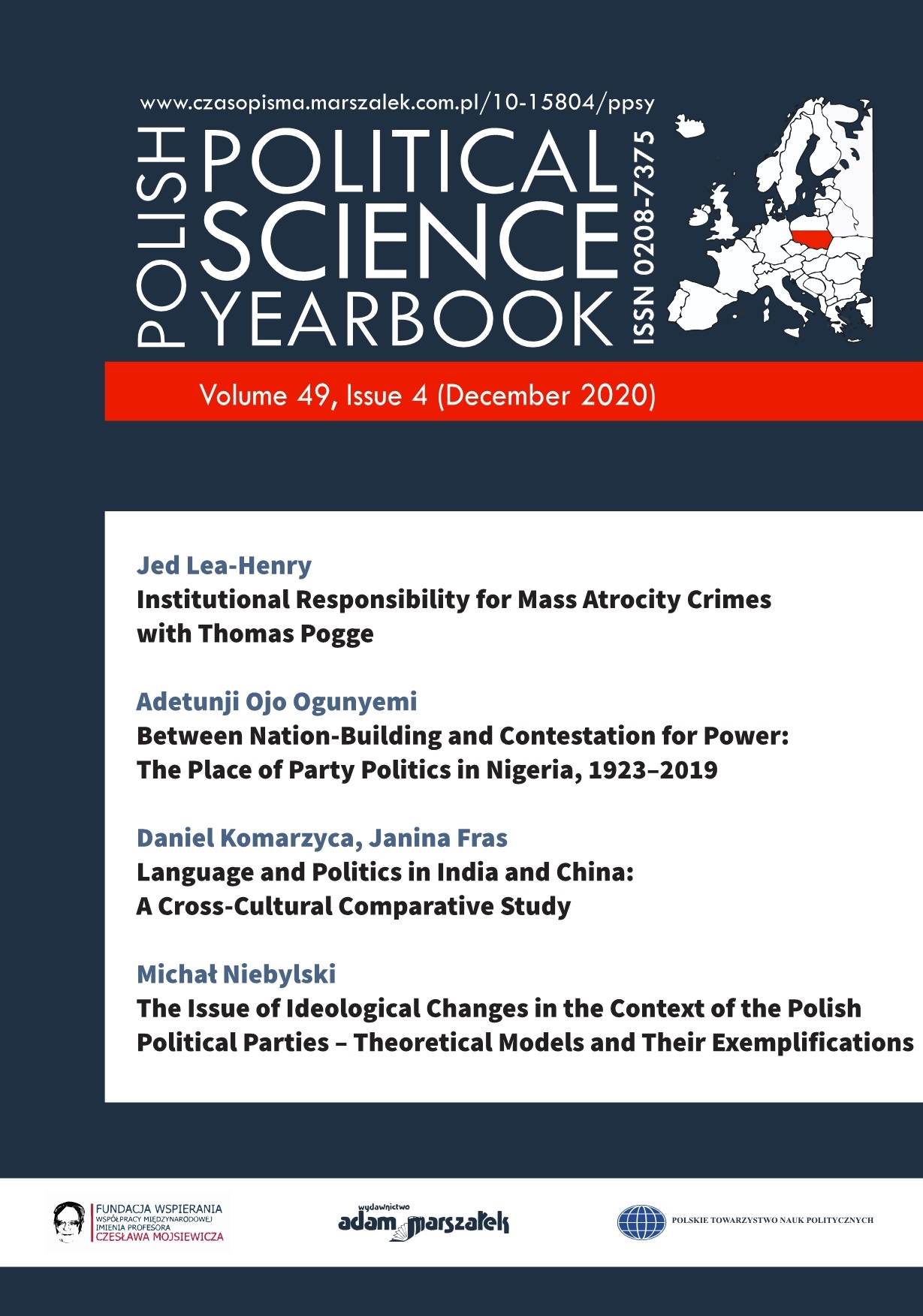Language and Politics in India and China: A Cross-Cultural Comparative Study
Language and Politics in India and China: A Cross-Cultural Comparative Study
Author(s): Daniel Komarzyca, Janina FrasSubject(s): Politics / Political Sciences, Social Sciences
Published by: Wydawnictwo Adam Marszałek
Keywords: Taoism;left-libertarianism;comparative perspective;linguistic relativity;philosophy of language;India;political culture;China;
Summary/Abstract: This paper provides insights into the relationship between language and politically relevant aspects of culture in India and China which are as follows: attitude toward revolution and tradition, the domination of politics over religion or vice versa, and a concern for the liberty of the individual. The paper introduces a novel approach to the comparative study of civilizations by advancing the political-linguistic explanation. In so doing, it combines Hajime Nakamura’s hypothesis of the strict connection between language and culture (understood as a way of thinking) with Samuel P. Huntington’s emphasis on the impact of cultural differences on the political dimension of society – so that our explanatory model can be expressed as follows: language→culture→politics. As far as language is concerned, the focus is on the basic structure of Sanskrit and Chinese; besides, special attention is given to Indian and Chinese philosophies of language. Culturally, the most relevant schools of Hindu philosophy may be called “ultraconservative” since they tend to ground unchanging meaning firmly in metaphysics and rely on the supreme authority of ancient religious texts. In contrast, the Chinese typically considered language a social mechanism for shaping our behavior (so the relation of language and society is the most crucial); they also expressed clearly divergent views on naming. In short, at least four distinctive perspectives are essential: (1) conservative Confucianism, (2) anti-traditional and highly authoritarian Legalism, (3) egalitarian and linguistically skeptical Laozian Daoism, (4) nonconformist and proto-libertarian Zhuangzian Daoism.
Journal: Polish Political Science Yearbook
- Issue Year: 49/2020
- Issue No: 4
- Page Range: 9-36
- Page Count: 28
- Language: English

